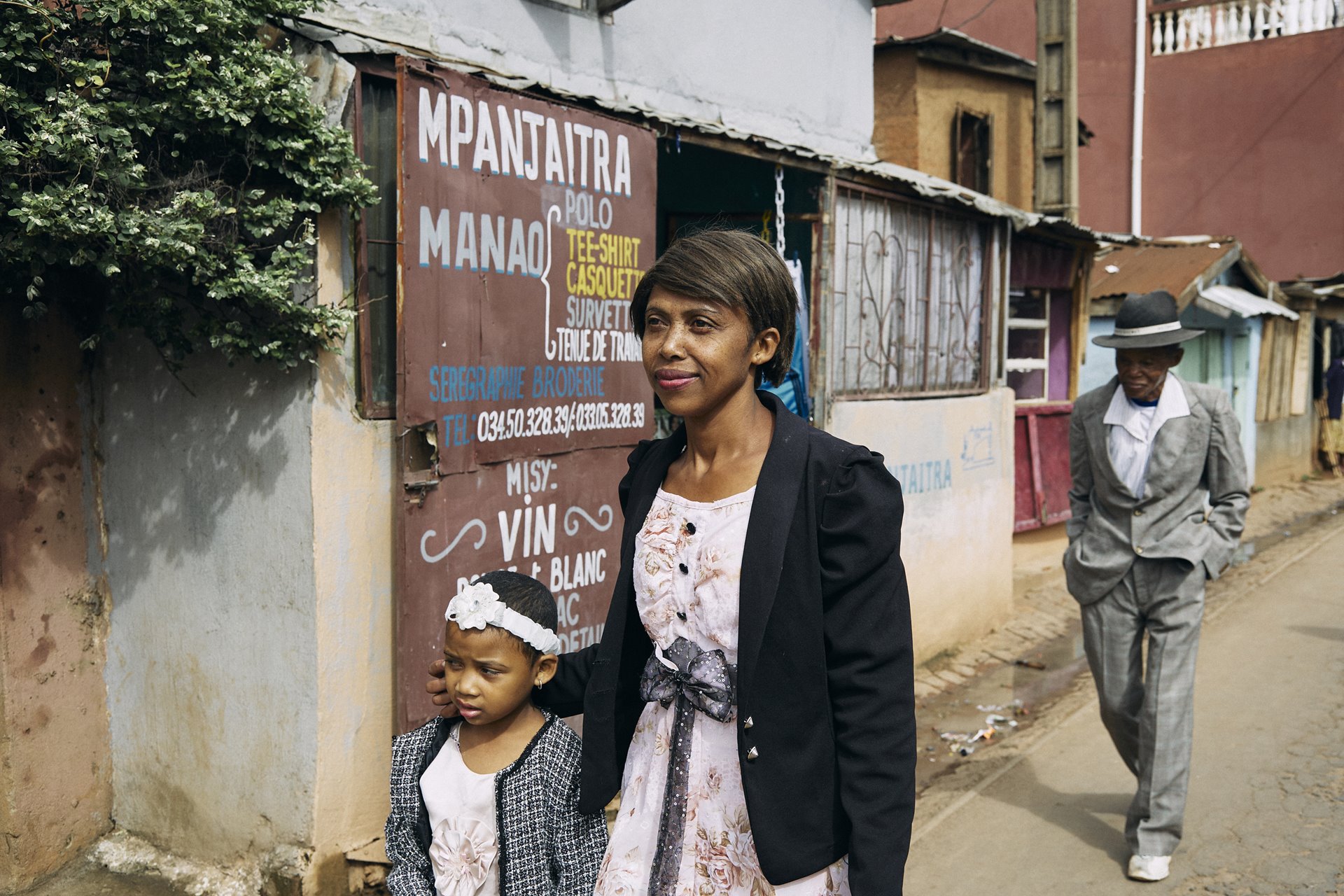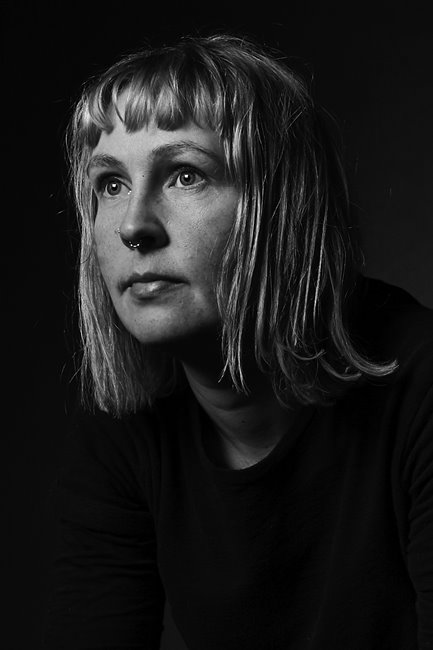Fara Rafaraniriana walks to church on Sunday morning with her daughter Odliatemix and her father Dada Paul, in Antananarivo, Madagascar.
Paul Rakotozandriny, ‘Dada Paul’ (91) has lived with dementia for 11 years, and is cared for by his daughter Fara Rafaraniriana (41). For nine of those years, no-one knew Dada Paul was ill. His ten children assumed he had “gone mad” or attributed the symptoms to excessive alcohol consumption. Only his daughter Fara noticed something different when her father, a retired chauffeur, couldn’t find his way home after picking her up from work one day. She had never heard of the terms “dementia” or Alzheimer’s, but was advised to contact Masoandro Mody, the only organization in Madagascar that provides support and training to family members of people living with dementia. The organization provided her the knowledge and support she needed to care for Dada Paul.
As life expectancy rises, dementia is becoming an issue globally. According to the World Health Organization, around 55 million people worldwide have dementia, with more than 60% of those living in low- and middle-income countries. In Madagascar, the WHO estimates that some 40,000 people live with Alzheimer’s. Lack of public awareness surrounding dementia means that people displaying symptoms of memory loss are often stigmatized. Many consider the symptoms to be signs of witchcraft, demonic possession, or “madness”.
By contrast, Fara and Dada Paul’s story illustrates the Malagasy principle of valim-babena – the duty of grown children to help their parents. Valim-babena is seen as an expression of love, the repayment of a moral debt for the care parents put into raising children. In that sense, it acts as a form of social security. Dementia care is shared by the person, their immediate family and between generations of the community at large.
Are you a photographer and/or passionate about press freedom? Sign up for our newsletter to stay updated on our annual contest and to hear about exhibitions near you.

